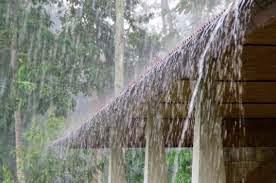It is only legal if…
By Roznah Abdul JabbarThe recent judgement concerning the legality of boom gates and security check points in housing areas has rekindled an age-old dispute: are private housing areas allowed to cordon off public roads for better security?
In a recent case, a judgement by the Federal Court, dismissed the appeal of Au Kean Hoe, a resident of D’Villa Equestrian in Kota Damansara, Selangor, who wanted legal action taken against the residents’ association (RA) of the housing estate.
Au said the guardhouse and two boom gates built in the housing estate ought to be demolished because they were illegal structures, a nuisance that amounted to a traffic obstruction.
The judgement, by a five-member panel chaired by Chief Judge of Malaya Tan Sri Zulkefli Ahmad Makinudin said regulated access to a defined area is not an obstruction in law.
In his judgement, Zulkefli said the developer of the housing estate had obtained approval from Petaling Jaya City Council (MBPJ) for the construction of the guard house.
He said it is not a barricade that is placed across a public road that denies access altogether to all who wish to enter. It is only illegal if one is denied access to a public place.
He said guardhouses and boom gates were authorised structures under the Town and Country Planning, Act 1976; the Street, Drainage and Building Act, 1974; and the Local Government Act, 1976.
Zulkefli added that MBPJ, as the relevant local authority in the present case, was fully empowered to approve the guardhouse with the boom gates in accordance with the MBPJ guidelines for guarded communities issued by the Urban Planning Department in May 2011.
Responding to this, Managing Director of MKH Bhd and President of Building Managers Association Malaysia Tan Sri Datuk Eddy Chen, said that the judgement was such in this case as the RA got the necessary approval from the local council.
“The judgement should not be a reason for everyone to start building a guard house and putting up boom gates as residents need to agree on the matter and approvals need to be obtained,” he said.
He said that a certain percentage of residents, according to the local council, should agree to the construction of the guard house or check points before it is constructed.
A Temporary Occupation License (TOL) must also be obtained for the structure of the guard house.
“Boom gates could be good for security reasons, but it should not be misused by residents,” Chen said.
He said that the practice needs to be regulated and enforced further to prevent misuse.
“There is no legal right for anyone to stop the public from entering a housing area. The guards cannot deny entry and prevent anyone from going in,” he said.
He said that the need for the boom gates and guard house comes because of crime rates in these housing areas.
“Robberies and thefts are the key reasons behind this self-established security system and it can be easily forgone if the crime rate could be controlled,” he said.
Agreeing with Chen, Richard Chan, the director of RCMC Sdn Bhd, said if the boom gate is blocking the main road from public access, it should be deemed as illegal.
“Even though the judgement says that the boom gate and guard house is legal, we must remember that one cannot just erect it without proper legal paperwork,” he said.
He added that barricades are another problem that local authorities should look into.
“Some housing areas with multiple entry and exit points are reduced to only one or two, as this could be a hindrance for the residents,” he said.
House Buyers Association’s (HBA) secretary-general Chang Kim Loong said the public should not, in any way, have the impression that the RA and neighbourhood watch group can immediately start placing oil drums and barricades across their streets.
He said that the Federal Court decision has affirmed the authority of MBPJ to regulate “Gated-and-guarded (G&G) Schemes” to ensure the laws under the Town and Country Planning Act, 1976; the Street, Drainage and Building Act, 1974 and the Local Government Act, 1976 are strictly adhered to.
“The decision also upholds the validity of the ‘Guidelines of Selangor Housing Board’ on G&G over current practices, in particular its approval of manned boom gates to regulate access,” he said.
He said that residents must always conform to the local authority laws. “Guardhouses [placed] on public roads need the procurement of a TOL before electricity and water may be connected. Anything not in conformity is illegal,” he said.
He said that HBA has presented a set of laws – “Gated-and-guarded Community Act” about seven years ago to the then Ministry of Housing and Local Government.
“We even repeated our call to the current Minister of Urban Wellbeing, Housing and Local Government when we made a social visit to him some time in July, 2013, but the Minister felt it was not time yet,” he said.
He said that HBA hopes the proposed Act will be relooked into as it is timely to have the regulations after the Federal Court decision.
“Guidelines are different from laws of Parliament. We want a set of new laws,” he added.













































